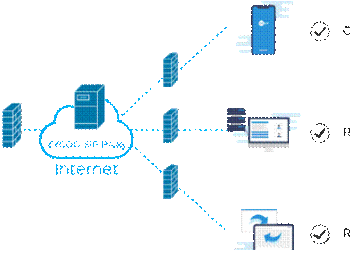Running a care home is more than just providing a roof over someone’s head. It’s about creating a safe, nurturing environment where residents feel valued, supported, and cared for with the highest standards. Behind every successful care home is a robust Human Resources (HR) system that ensures the smooth functioning of operations and, most importantly, the well-being of both the staff and the residents.
Care home HR services are essential in this industry, as they help navigate the complexities of staff management, compliance, and training while ensuring that care home operations are efficient and residents receive the best possible care. Let’s dive into the world of care home human resources and understand how it plays a pivotal role in delivering exceptional care.
The Role of HR in Care Homes
HR in a care home setting is crucial for both the operational and emotional success of the organization. Care homes rely heavily on their staff, from caregivers and nurses to administrative and support personnel, to ensure the well-being of their residents. Proper HR management allows care homes to focus on what matters most: providing compassionate care while adhering to regulations and standards.
Some key areas where HR plays a vital role in care homes include:
- Recruitment and Retention
Finding the right staff is one of the most significant challenges for care homes. The industry demands compassionate, skilled, and reliable professionals to care for vulnerable individuals. HR professionals are responsible for ensuring that the recruitment process attracts the best candidates, whether it’s qualified nurses, carers, or managers. This means sourcing talent, screening resumes, and conducting interviews that focus on both professional qualifications and emotional intelligence.
Moreover, employee retention is just as important as recruitment. HR teams are responsible for fostering a positive work environment that supports staff well-being and job satisfaction, reducing turnover rates. Regular training, mentorship, and career development opportunities can go a long way in ensuring employees feel valued and remain committed to their roles.
- Compliance and Regulation
Care homes are highly regulated environments. Compliance with laws and industry standards is paramount to ensure the safety and dignity of residents. HR departments must stay up-to-date with a constantly evolving legal landscape, including health and safety regulations, employment laws, and safeguarding protocols.
For example, ensuring that all staff members have undergone necessary background checks (such as DBS checks), and that proper training in safeguarding and infection control is in place, is the responsibility of HR. Any lapse in compliance could result in legal action, penalties, or even a loss of accreditation. HR teams in care homes are the guardians of these critical standards.
- Training and Development
In the care home sector, continuous professional development (CPD) is essential. Care staff must regularly undergo training to stay updated with the latest care techniques, medical procedures, and safety protocols. A strong HR team ensures that all staff members are equipped with the necessary skills to provide exceptional care.
From manual handling and first aid training to specific care techniques for conditions like dementia or palliative care, HR is responsible for creating tailored training programs that address the diverse needs of both staff and residents. Furthermore, by providing ongoing development opportunities, HR helps to foster a culture of growth and improvement, which ultimately benefits everyone involved.
- Employee Well-being and Support
Working in a care home can be physically and emotionally demanding. Staff often face challenging situations, including end-of-life care, emotional strain, and high-pressure environments. HR teams are vital in promoting a culture of well-being by offering support mechanisms for staff, such as mental health resources, counseling, and stress management programs.
In addition to emotional support, HR also plays a role in ensuring staff welfare by providing fair compensation, benefits, and adequate breaks, all of which contribute to a positive working atmosphere and lower levels of burnout.
Challenges of Care Home HR
Running HR operations in a care home comes with its own set of unique challenges. Some of these include:
- High Turnover Rates: Care homes often experience high turnover rates due to the demanding nature of the work. Retaining skilled staff is one of the biggest hurdles for HR departments. However, by focusing on employee satisfaction, creating career progression pathways, and offering regular feedback and recognition, HR teams can reduce turnover and improve retention.
- Skill Shortages: The care sector is facing a significant shortage of qualified healthcare workers. HR professionals need to be creative in attracting talent, offering flexible work arrangements, competitive salaries, and training programs to develop in-house talent. This requires a proactive and strategic approach to workforce planning.
- Adapting to Changing Regulations: The care sector is subject to frequent regulatory changes, particularly when it comes to safety standards, patient care guidelines, and staffing requirements. HR teams must stay ahead of these changes to ensure that the care home remains compliant. Failure to do so can lead to fines, reputational damage, and even the closure of the care facility.
- Maintaining Staff Motivation: Given the emotionally taxing nature of care work, HR must find ways to keep staff motivated and engaged. This includes offering recognition for hard work, ensuring fair workloads, and providing opportunities for staff to share their experiences and voice concerns.
How Avensure Supports Care Homes with HR Services
At Avensure, we understand the unique challenges that care homes face when it comes to HR management. Our dedicated care home HR services are designed to support care providers in navigating the complexities of staffing, compliance, and employee well-being.
With our help, care homes can benefit from expert advice on recruitment, training, and employee retention strategies. We take care of the day-to-day HR tasks, allowing care home managers and owners to focus on what truly matters: providing outstanding care for their residents.
Some of the key HR services we offer to care homes include:
- Recruitment and Staffing Solutions: We help care homes attract and retain qualified, compassionate staff members by offering recruitment support, screening services, and onboarding programs.
- Compliance and Risk Management: We ensure that care homes remain fully compliant with all industry regulations and provide guidance on health and safety, safeguarding, and other compliance-related issues.
- Training and Development: Our tailored training programs ensure that staff are equipped with the skills and knowledge they need to deliver high-quality care.
- Employee Relations and Support: We provide ongoing support to staff, handling any HR-related concerns and promoting employee well-being and morale.
Conclusion
Effective Human Resources management is at the heart of every successful care home. With a focus on recruitment, compliance, training, and employee welfare, HR services help ensure that care homes operate smoothly, staff remain motivated, and residents receive the best possible care. By partnering with an expert HR service provider like Avensure, care homes can tackle the challenges of the sector head-on, ensuring their operations are efficient, compliant, and, most importantly, compassionate.




![7 Best POS Software in the UK [2026 Edition]](https://todaynews.co.uk/wp-content/uploads/2026/02/7-Best-POS-Software-in-the-UK-2026-Edition-360x180.png)






































































